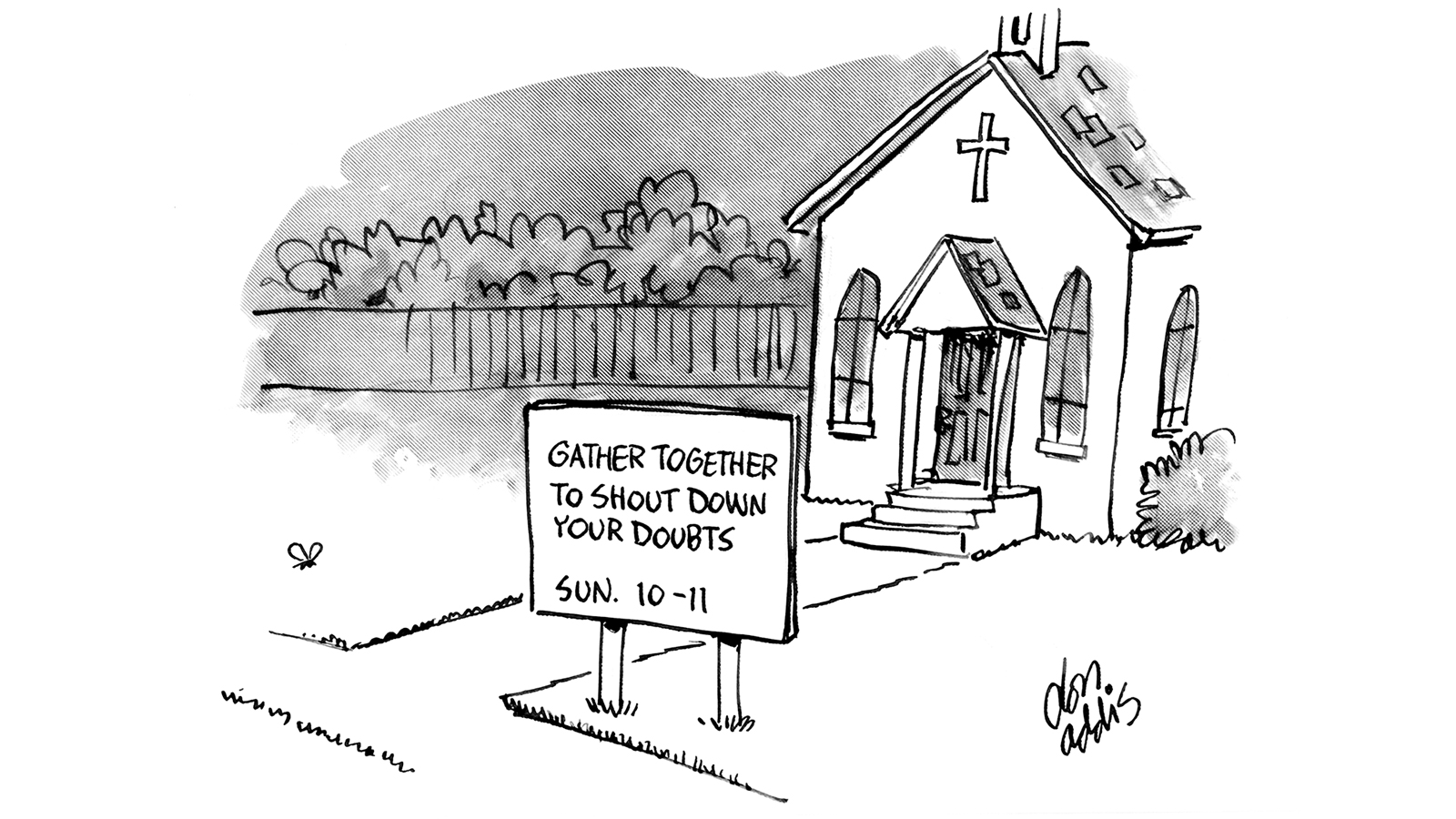
A welcome new survey finds that only half of Americans are confident in the existence of God.
Less than 50 percent of Americans are now sure God exists, dropping from 60 percent in 2008. The General Social Survey by NORC, the University of Chicago’s research organization, also shows that church membership and attendance, which have declined for decades, have reached the lowest figures recorded for the past half century. These latest findings are in addition to other recent heartening studies showing the continuing growth of the religiously unaffiliated.
The NORC survey, just as with Pew Research Center, also reveals that 29 percent of Americans claimed no religion, up from 23 percent in 2018 and 5 percent in 1972.
“We have a data point from the 1950s where only 3 percent of people said they had no [religious] affiliation,” says Mark Chaves, Anne Firor Scott Distinguished Professor of Sociology at Duke University. “It got up to 8 or 9 percent in the 1990s, and it’s sort of accelerated since then.”
NORC found that 34 percent of Americans never go to church. Likewise, 34 percent pray “less than once a week or never.” Only 4 percent say they attend once a month and another 4 percent attend “nearly every week,” meaning any given Sunday most Americans aren’t in church. And a scarce 15 percent evince “a great deal of confidence” in religion, compared to the peak of 45 percent voicing confidence in religion back in 1974.
A mere 14 percent identify as “very religious.” The survey found that 6 percent believe in God “sometimes” and 7 percent responded that they “don’t know and [there’s] no way to find out.” Another 7 percent are atheists, saying they do not believe in God.
“They’re not saying night prayers, morning prayers, taking their kids to church,” says Thomas Groome, a professor in theology and religious education at Boston College, about the “Nones” (religiously unaffiliated). “Whatever religion we have going forward will be by persuasion and choice and not by inherited identity.”
While church attendance is down, nondenominational Protestants (called the “nons”) are on the rise. In the 1970s, “nons” were a tiny percentage of overall Protestants, but today are nearly 15 percent of Americans, and the second-largest religious group after Catholics. (Let’s not forget that the “Nones” are the largest group by religious identification, surpassing Catholics or any single religious denomination.)
While almost 30 percent of Americans identify with no religion or as nonreligious, another 20 percent clearly have strong doubts, given the findings that 50 percent are not confident in God’s existence.
FFRF Co-President Dan Barker has long noted this undercurrent of doubt among religionists: “Scientists do not join hands every Sunday and sing, ‘Yes gravity is real! I know gravity is real! I will have faith! I believe in my heart that what goes up, up, up must come down, down, down. Amen!’ If they did, we would think they were pretty insecure about the concept.”
The weakening of religion offers hope. “It looks like the United States is on track to catch up with Europe,” Barker adds, “especially the Nordic countries, which happen to be not only among the least religious nations on the planet but also the happiest.”
The Freedom From Religion Foundation is a national nonprofit organization with more than 40,000 members and several chapters across the country. Our purposes are to protect the constitutional principle of separation between state and church, and to educate the public on matters relating to nontheism.

